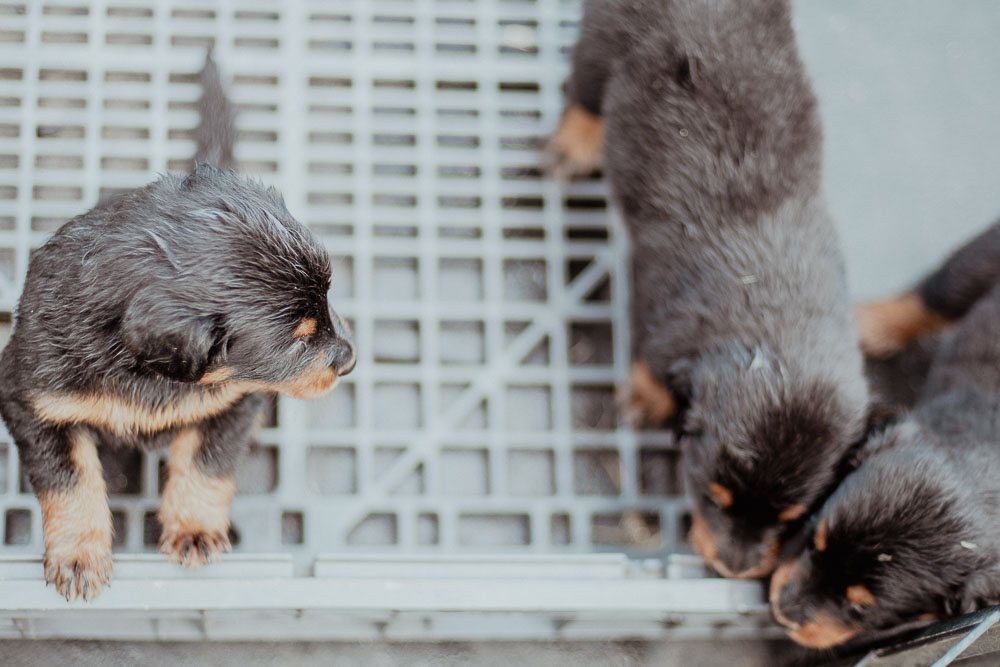In the period of socialization, there are two basic rules for producing a well-balanced and well-adjusted dog.
The first of these is that the ideal time to produce a close social relationship between a puppy and his handler occurs between 6 and 8 weeks of age. This is the optimal time to remove a puppy from the litter. If this is done earlier, especially at 4 weeks or before, the puppy has little opportunity to form normal social relationships with other dogs. It will form close relationships with people but may have difficulty adjusting to its own kind even in mating or caring for puppies. On the other hand, if primary socialization with people is put off to a much later period (the outside limit being about 12 weeks), the social relationships of the puppy with other dogs may be very good, but he will tend to be timid and to lack confidence with people.
The second general rule is that the young dog should be introduced, at least in a preliminary way, to the circumstances in which it will live as an adult, and this should be done before 3 or 4 months of age. The young puppy from 8 to 12 weeks is a highly malleable and adaptable animal, and this is the time to lay the foundation for its future life work (Scott and Fuller 1974).
References
- Scott, J.P., and John L. Fuller. 1974. Genetics and the Social Behaviour of the Dog. A Phoenix Book, P570. University of Chicago Press. http://esbt.us/2y.
- Ha, J.C., and T.L. Campion. 2018. Dog Behavior: Modern Science and Our Canine Companions. Elsevier Science. http://esbt.us/2z.
Return to the CHEW Protocol main page

This work (A Canine Health Enrichment and Whelping Protocol, by the Old-fashioned Black & Tan English Shepherd Association) is free of known copyright restrictions.

